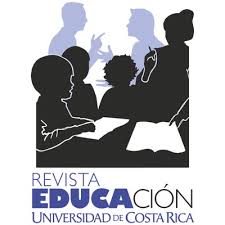Abstract
The paper shows the gap between students and teachers regarding the use and management of basic and advanced information and communication technologies in the teaching-learning process, a quantitative investigation descriptive-interpretative and analytical type was carried ex-post-facto and data obtained through the application of a questionnaire has been presented; based on previous research that included the areas of equipment management, desktop software and internet specialized in education and research; it was applied to 133 teachers and 906 students from two universities in Ecuador, one from Quito and one from Guayaquil. It was observed that students use mostly Internet-based technology It was observed that students mostly use Internet-based technology, without this meaning that they do it for academic purposes (often for recreation); however teachers take advantage of or give more utility to traditional tools in academic activities such as PCs, projectors and so on. In the use of basic technology, the gap is small in these two groups, because university teachers are constantly training this type of technology, mainly because the study centers are looking for continuous improvement in their educational quality, in addition that there are policies and laws of the Ecuadorian State that allow the constant evaluation of universities in search of academic quality and improvement in the process of generating knowledge to obtain a University accreditation and in several of the indicators of this evaluation are the use of basic communication technology. However, the gap is much greater between students and teachers in the use of advanced information and communication technologies, but they are not used for academic purposes and are only used for leisure.
References
Referencias extraídas
Fombona, J., & Pacual, M.(2011) Á. Las tecnologías de la información y la comunicación en la docencia universitaria. Estudio de casos en la Universidad Nacional Autónoma de México (UNAM). Educación XXI, 14(2), 79-110.
Fu, J. S. (2013). ICT in education: A critical literature review and its implications. International Journal of Education and Development using Information and Communication Technology, vol.9(1), 112-125.
Georgina, D. A., & Hosford, C. C. (2009)Higher education faculty perceptions on technology integration and training. Teaching and Teacher Education, 25(5), 690-696.
Hernández, R., Fernández, C., & Baptista, P. (2010). Metodología de la investigación. México: Editorial Mc Graw Hill.
Johnson, L., Becker, S., Estrada, V., and Freeman, A. (2015). NMC Horizon Report: Edición Educación Superior 2015. Austin, Texas: The New Media Consortium.
Kalogiannakis, M. (2010). Training with ICT for ICT from the trainee’s perspective. A local ICT teacher training experience. Education and Information Technologies, vol.15(1), 3-17. doi: DOI 10.1007/s10639-008-9079-3
Lareki, A., Martínez de Morentin, J. I., & Amenabar, N. (2010). Towards an efficient training of university faculty on ICTs. Computers & Education, vol.54(2), 491-497. doi: 10.1016/j.compedu.2009.08.032
Nordkvelle, Y., & Olson, J. (2005). Visions for ICT, ethics and the practice of teachers. Education and Information Technologies, vol. 10(1-2), 21-32.
Norman, K. L., Friedman, Z., Norman, K., & Stevenson, R. (2001). Navigational issues in the design of online self-administered questionnaires. Behaviour & Information Technology, vol.20(1), 37-45.
Rozo, A. C., & Prada, M. (2013). Panorama de la formación inicial docente y TIC en la Región Andina. Revista Educación y Pedagogía, vol.24(62), 191-204.
UNESCO (2005). Hacia las sociedades del conocimiento. Publicaciones Unesco. París.
Van Der Vyver, G. (2009). The search for the adaptable ICT student. Journal of Information Technology Education: Research, vol.8(1), 19-28.
Venables, A., & Tan, G. (2012). Measuring up to ICT Teaching and Learning Standards. Issues in Informing Science & Information Technology, 9, 29-40.
ENLACES. Estándares TIC para la formación inicial docente: Una propuesta en el contexto chileno, 2008 . Recuperado de http://ww2.educarchile.cl/UserFiles/P0001/Image/Estudiantes_pedagogia/estud_pedagogia/estandares_Fid/Estandar_TIC.pdf







